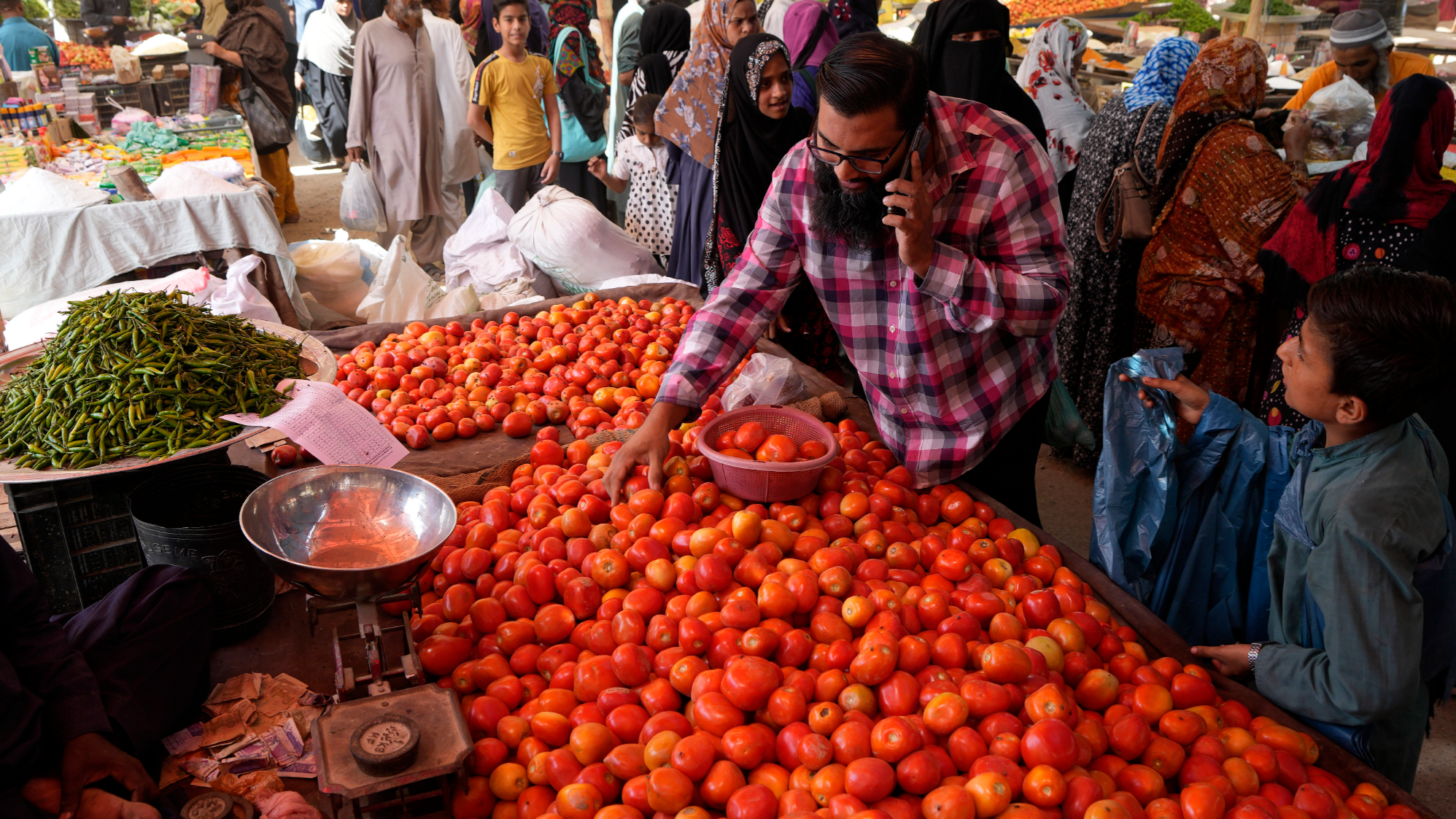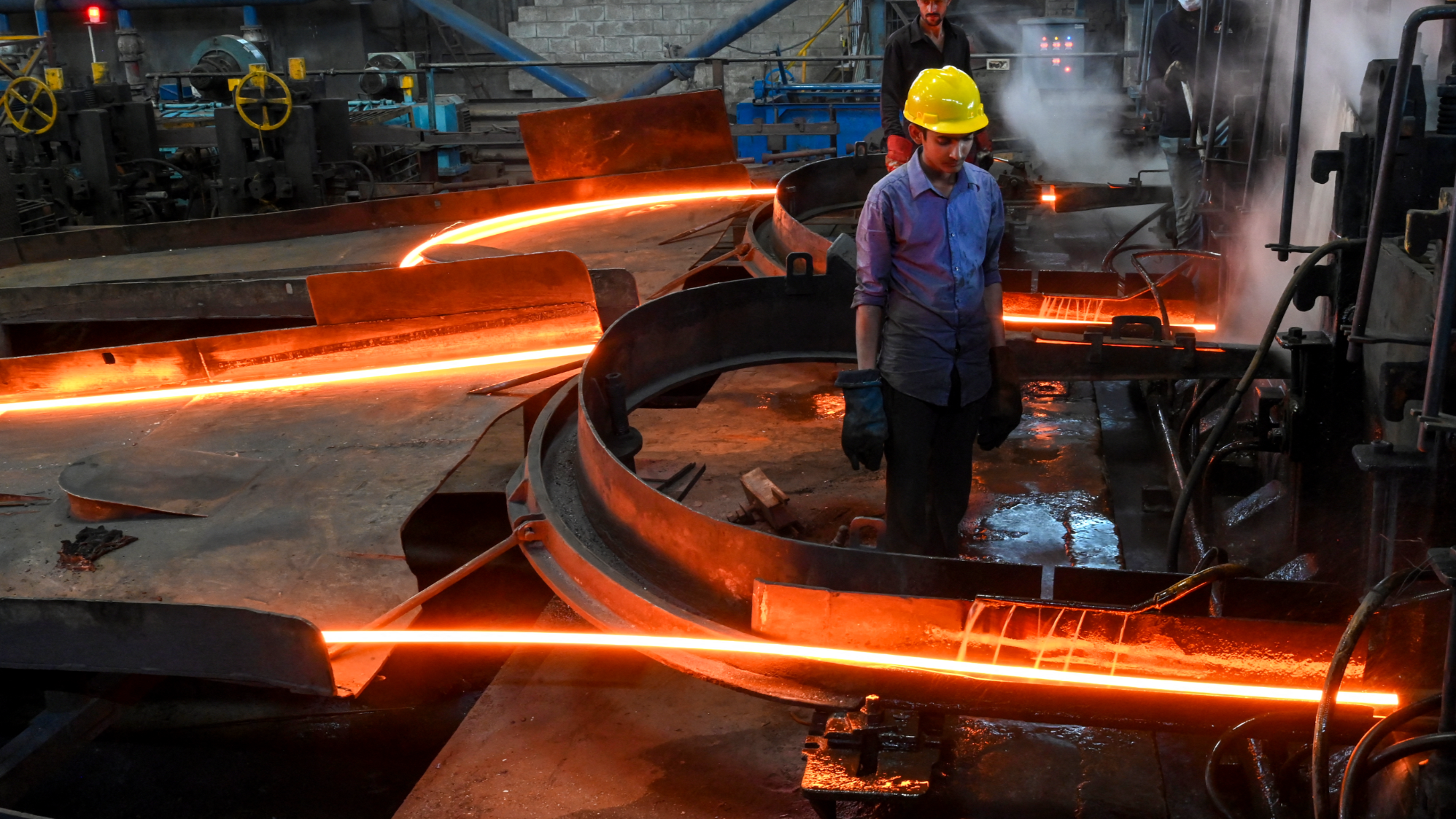
Pakistan is navigating the challenging process of economic recovery, with the new government making some progress in pushing structural reforms, experts said.
While recent developments were positive, the South Asian nation still faces an uphill battle as it confronts several challenges, they said.
The IMF, in its own statement released on April 29, noted that with the latest disbursement, the lender has provided a policy anchor to address Pakistan's domestic and external imbalances as well as a framework for financial support from multilateral and bilateral partners
Mustafa Hyder Sayed, executive director of Islamabad-based think tank Pakistan-China Institute, said the economy of Pakistan has been going through a volatile period because of a dip in foreign exchange reserves, circular debt and low exports and high inflation.
READ MORE: Pakistan's newly elected PM vows to revive national economy
“But the new government is undertaking structural economic reform and we have also just finalized an agreement with the International Monetary Fund (IMF), which will give us more breathing space,” he said, also adding that “the second phase of the CPEC will bring significant investment into Pakistan”.
He was referring to the China-Pakistan Economic Corridor, the mega infrastructure project undertaken under the China-led Belt and Road Initiative.
Pakistan just received around $1.1 billion in final tranche from IMF as part of a total loan of about $3 billion agreed to last year under an economic stabilization program.
The State Bank of Pakistan said in a statement on April 30 that the amount will be reflected in the foreign exchange reserves of the central bank for the week ending on May 3.
The IMF, in its own statement released on April 29, noted that with the latest disbursement, the lender has provided a policy anchor to address Pakistan's domestic and external imbalances as well as a framework for financial support from multilateral and bilateral partners.
Earlier, Pakistani Prime Minister Shehbaz Sharif said that his government is diligently pursuing economic reforms to overcome the ongoing challenges in the financial sector.

Chairing a meeting of the federal cabinet in Islamabad on April 26, Sharif said that with the collective efforts of all government departments, the country's economy is on the path to recovery. Economic indicators and figures have displayed an improvement, which is being noticed and acknowledged by international financial institutions.
Shakeel Ahmad Ramay, CEO of the Islamabad-based Asian Institute of Eco-civilization Research and Development, mentioned the risks of stagnant growth, higher inflation and even further economic troubles
Sharif also said in April that his government is committed to double the nation’s export volume during its term over the next five years.
“The government is focusing on several fronts to rejuvenate the economy. Measures such as increasing exports and remittances, combating power theft, and advancing privatization are seen as pivotal,” said Tahir Farooq, editor-in-chief at Daily Ittehad Media Group and Pakistan Economic Net.
He noted that the IT sector and inward remittances have shown promising growth, suggesting early signs of positive impact from the policies.
The “prime minister’s approach is holistic and inclusive, urging the opposition to collaborate rather than confront, emphasizing the importance of national unity in economic reform,” Farooq said.
However, he noted that there are ongoing challenges, including maintaining political stability, ensuring continuous foreign investment, and implementing tough but necessary economic reforms. “These challenges require careful handling to ensure sustainable economic recovery and growth,” he added.
Shakeel Ahmad Ramay, CEO of the Islamabad-based Asian Institute of Eco-civilization Research and Development, mentioned the risks of stagnant growth, higher inflation and even further economic troubles.

To resolve the issue, Pakistan will have make production enhancement a priority, do everything to fast-track industrialization and boost agriculture production, improve governance and eradicate corruption and nepotism, making the environment business-friendly, he said.
Ahmad also cited the need to accelerate the implementation of the second phase of the CPEC, a flagship project under the China-led BRI program, saying such move could unleash opportunities that could help reverse the Pakistani economic crisis.
Sayed from the Pakistan-China Institute said the Special Investment Facilitation Council (SIFC) is expected to facilitate new investments, with a focus on drawing capital from Middle East countries as well as China
Meanwhile, some critics hope Pakistan must resist undue pressures from the West and any unreasonable demands of the IMF.
“It is good that the IMF is satisfied with Pakistan's performance, but the satisfaction has been achieved at the cost of the poor and middle-class Pakistan,” Ahmad said, adding that rise in prices of essential commodities can fuel inflation.
Sayed from the Pakistan-China Institute said the Special Investment Facilitation Council (SIFC) is expected to facilitate new investments, with a focus on drawing capital from Middle East countries as well as China.
“Of the 250 million people of Pakistan, 60 percent are youth under 35. It is a huge opportunity for Pakistan as a market for consumer goods, and as a country that has a demographic dividend. The opportunities to grow economically are significant,” said Sayed.
READ MORE: Pakistan confirms making formal request to join BRICS
Syed Shujaat Ahmed, an independent economist, said opportunities are there, but realizing them hinges on stability and consistency of the policies in the pipeline and those that have already been drafted.
He agreed that SIFC which has been put in the driving seat has the key to unleash opportunities, as country is in dire need of investment.
“SIFC can push trade agenda first and later convert it to investment for long-run partnership. This will not only help the economy from trade and investment point of view but will also help in generating employment opportunities, leading toward growth and development.”
Xinhua contributed to this story.
Contact the writer at vivienxu@chinadailyapac.com


